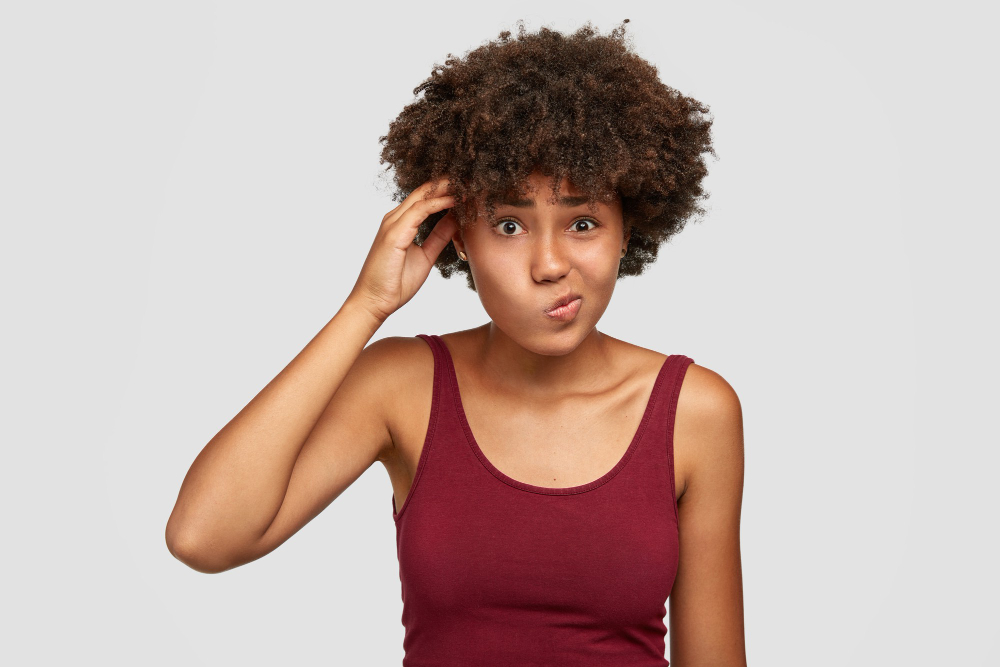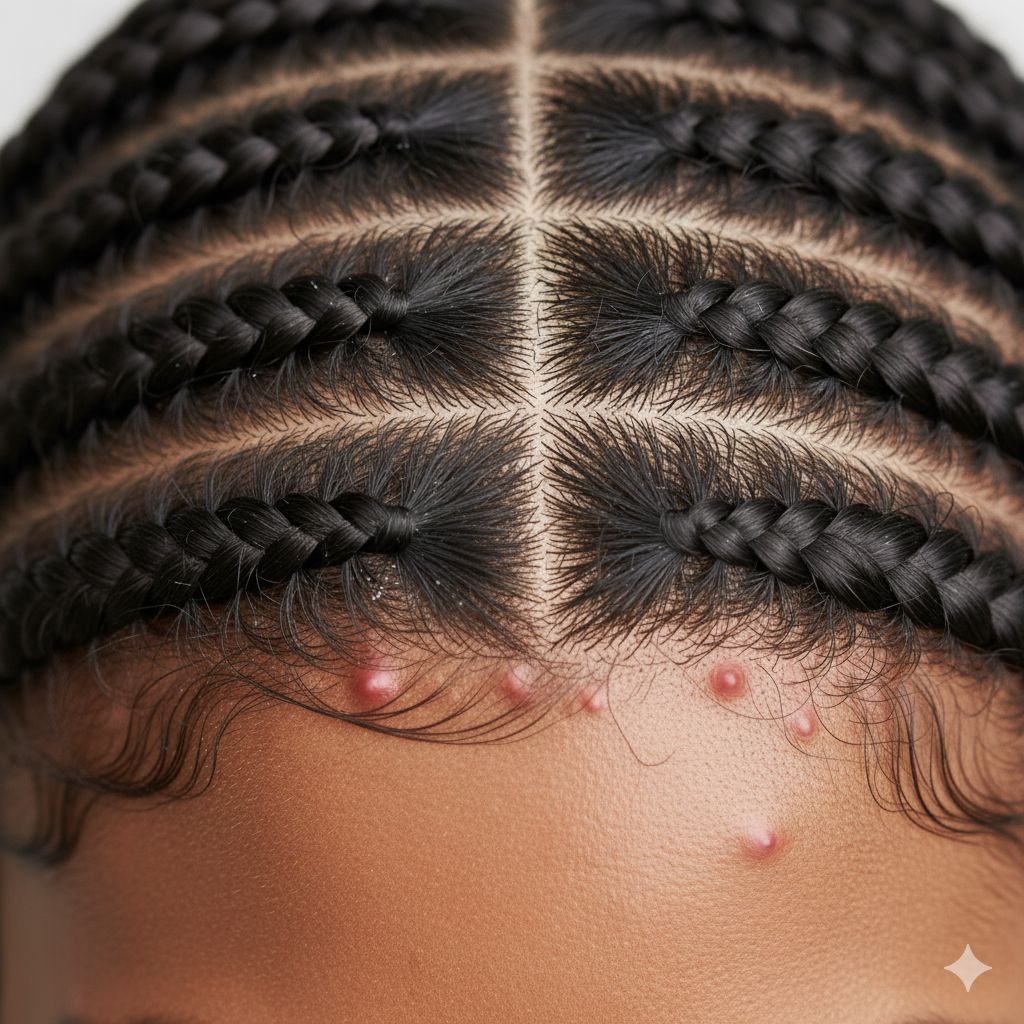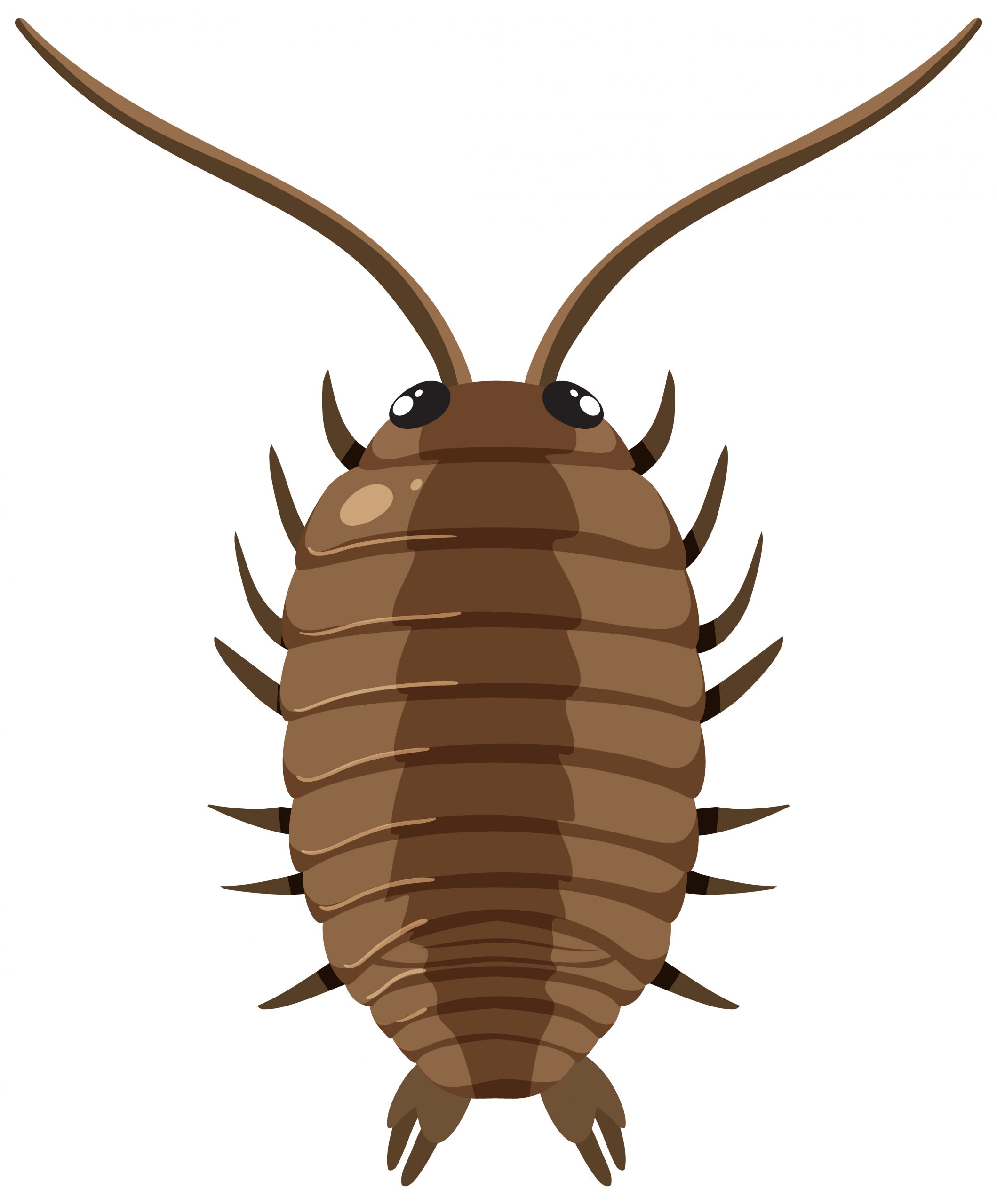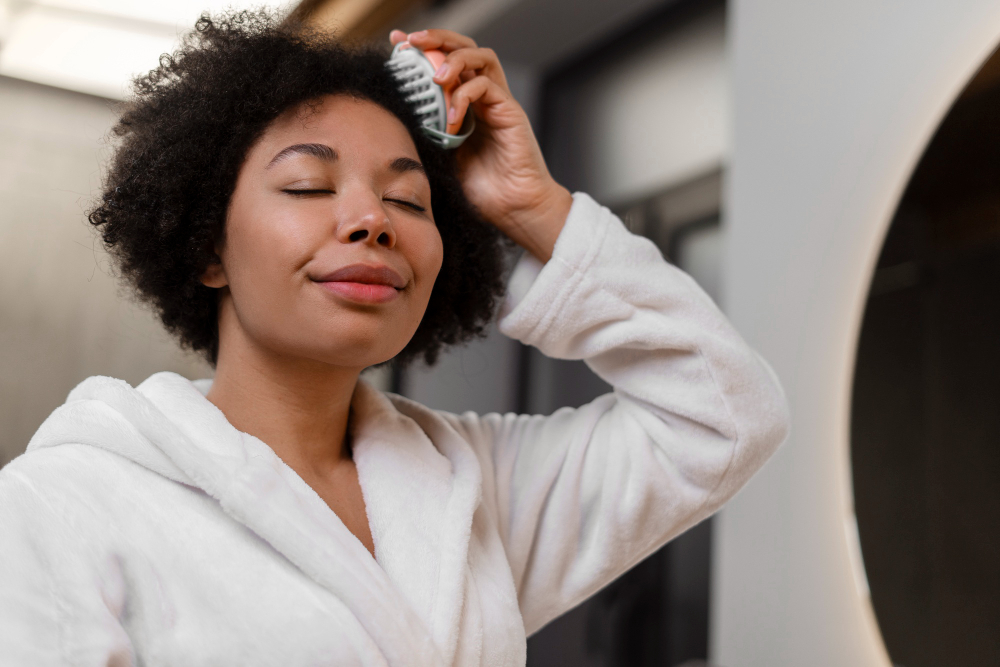Trending Article · 15 mins read
Itchy Scalp: 5 Tips to Stop Itching Type 4 Hair

An itchy scalp can be a real torment, a nuisance, and in some African settings, it is associated with dirty hair or poor hygiene. But is that really the case?
Many times itchy scalp is closely related to flaky or dry scalp. But other times, your scalp is just itchy without these reasons.
That itchy scalp unconnected to those issues is what this article is about. To begin, what is itchy scalp?
What is an Itchy Scalp?
Itchy scalp is a common condition where the scalp is irritated, feels prickly and you keep scratching to feel relief.
Scalp itchiness can be a symptom of conditions like:
Dandruff
Scalp psoriasis
Ringworm
Scabies etc.
For severe cases of dandruff and other conditions, we recommend that you consult your doctor without delay.
What other things cause itchy scalp? Let's find out
Causes of Itchy Scalp
1. Wrong product choice or use
Have you noticed that each time you use a particular product, such as a leave-in conditioner, hair butter, or even a mask, your scalp becomes itchy? The reason might be that you're using your product incorrectly or you've chosen the wrong product.
Take Aloe vera, for example; it's a great product for moisturising, treating itching, dandruff, amongst other things. But some persons have reported reactions like itching, burning, eczema when they use Aloe vera. Always do a patch test before applying the product entirely, especially if you are using it for the first time.
Another thing is applying products wrongly. Now, some products specifically tell you “do not apply directly to your scalp” If you do apply to your scalp, it might cause product buildup , which can lead to itching.
2. Product buildup can cause itchy scalp
This might be a no-brainer as to why your scalp feels itchy.
If you are a natural girlie who uses a lot of products like butters, gels, edge controls, etc, and you leave them in for long periods (weeks, months) before you wash them off, the buildup on your scalp can lead to itching.
Also, if you're a natural girlie who doesn't use gels often, you might notice that when you do, it might cause you to itch. It could be because your scalp isn't used to it.
3. Hair extensions and braiding practice
Have you noticed that when you use extensions (most times synthetic extensions) on your hair, it feels itchy? It may be a reaction to some of the products used in packaging the extension. Chemicals like
Now, when you use these extensions to braid, if the braid is too tight, it can cause you to itch.
So when you make a new hairstyle, try to determine if it's the extension itself or the tightness of the braid that's making you itch.
4. Weather
😂 Before you raise those eyebrows, hear us out.
Have you noticed that during summer or the heat season, many naturals opt for simpler, open hairstyles? Why do you think that is?
Because sometimes, humid weather causes your scalp to sweat more, which makes your products build up faster and cause you to itch. Does it make sense now?
5. Dry scalp
You know how your skin might feel dry, and it causes you to itch? It's the same thing for your scalp.
When your scalp is dry, it can cause you to itch. It's possible that you've stripped it of nutrients and moisture while shampooing or clarifying, and you haven't replaced them.
Shampooing can strip the hair of moisture, and when there isn't moisture left, what you get is a dry scalp, which leads to itching.
So, how can you stop itchy scalp?
5 Tips to Stop Itchy Scalp
1. Choose your products carefully
Now that you know wrong product choice can cause itching, take your time to choose your products. Carefully read the ingredient list and instructions on the bottle. If you are allergic to any of the products best to avoid them.
Follow the instructions on the body of the product. The manufacturers know their product better than you do. Also, if you are using a product for the first time, patch testing is a great way to determine how your hair loves or hates it.
2. Wash your hair regularly
Washing regularly doesn't mean “everyday”, it means consistently and promptly. Stick to your wash day routine as much as you can. Now, we know that things can get really busy sometimes, but don't go too long before you wash your hair.
For naturals that use a lot of product, or if you want a real scalp cleanse, using a clarifying shampoo as often as required is necessary.
3. Use the right oils to prevent itchy scalp
Oils lock in moisture, so for dry scalp, don't skip oils in your routine. Depending on your hair porosity, it could be lightweight (e.g Olive oil) or heavy (e.g Castor oil). Know your hair and use what works for it.
Oils like peppermint, tea tree are usually the go-to choices for itchy scalp because they have a soothing effect as well as moisturizing properties.
Remember that both oils are essential oils, so don't apply them directly and always dilute with a carrier oil like almond, olive, coconut, etc. If you aren't a DIY natural, feel free to use already prepared oils that contain any of the oils that work for itchy scalp.
Again, make sure to read the product list.
4. Care for your synthetic braiding extensions before use
Now, this might be a tedious task, but if you notice itching when you use extensions, this tip could be your saviour. Caring for your extensions before using them on your hair requires you to wash them before use, or even just soaking them in water before attaching them to your hair, where applicable. You can also try soaking in apple cider vinegar before using your extensions.
This video by Simply Just Cee! on YouTube shows how you can do the vinegar rinse on braiding hair
Please read the instructions on the body of the extension or ask your stylist if pre-use washing works for the extension you intend to use. Do this so you don't spoil the extension and waste your money; we wouldn't want you to.
5. Deep condition effectively to fix itchy scalp
After washing your hair and stripping it of some nutrients and much-needed moisture, replace it with a deep conditioner or hair mask. Always deep condition your hair; this doesn't just moisturize your strands, it penetrates to the shaft and moisturizes from within.
So don't play with deep conditioning.
6. Moisturize properly and regularly to reduce itchy scalp
Pick a moisturization method that works for your hair.
Don't skip the essentials- water, leave-in conditioner, hair cream or butter and oil.
Moisturize as often as your hair needs it. Don't allow your hair to get so dry before you remember to moisturize, it might just flare the itching.
7. Air dry your hair
Now, we said “air dry,” not blow dry it. Sometimes what your hair needs is a little air and sunshine.
Allow your hair to be sometimes, don't always shove it under a wig, turban or scarf. On the days that the weather is “just right”, allow your hair to “breathe”.
8. Bonus tip: Keep a hair journal
Yes, we know you might wonder, “How does this help?”. This is how?
As you try different tips, keeping a journal will help you take notes of what worked and what didn't. So, even if it stops now and maybe returns much later, you go back to your journal and see what you've been skipping.
And no, we don't mean a mental journal; we mean an actual book or digital record. There are a lot of things you think of; you can't guarantee that you'll remember everything.
With a journal, you don't have to rack your brain; you only have to recall with your records.
Wrapping up
Itchy scalp can be really uncomfortable and, yeah, embarrassing, but you can manage it or stop it with the tips we've listed.
Now, don't expect results in just one day or a few weeks of trying. Consistently try these tips and see how they work wonders for your hair.
Don't keep your experiences and tips to yourself; share them with other natural hair lovers too. Join the community


